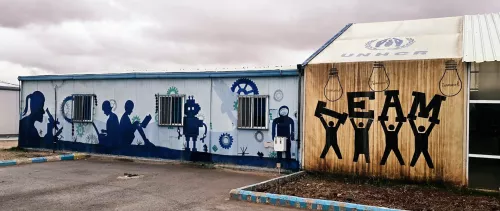
Experts from across the Americas share insights and experiences with modern management of radio-frequency spectrum.
Radiocommunication experts from around the Americas met last month to increase their insights on efficient and effective management of radio-frequency spectrum to drive the region’s digital transformation.
The regional gathering was part of preparations for the upcoming World Radiocommunication Conference (WRC-23) organized by the International Telecommunication Union (ITU).
The ITU Regional Radiocommunication Seminar 2023 for the Americas Region (RRS-23 Americas), held in Havana, Cuba, on 8-12 May, examined the current regulatory framework for international frequency management.
Seminar participants also reviewed ITU-R Recommendations – the voluntary technical standards developed and promoted through the ITU Radiocommunication Sector – and best practices regarding the use of spectrum for both terrestrial and space services.
“ITU’s seminars provide a unique platform for regulators to deepen their knowledge of radio-frequency spectrum management and share best practices,” said Cuba’s Minister of Communications, Mayra Arevich Marín. “The latest seminar was crucial in helping countries prepare for discussions at WRC-23.”
Regional Radiocommunication Seminars form part of an ITU capacity-building programme aimed at ensuring efficient and economical use of the radio-frequency spectrum by all radiocommunication services around the world.
“The Regional Seminars are the most important means for the ITU Radiocommunication Bureau to disseminate the outcomes of World Radiocommunication Conferences and modifications to the Radio Regulations, as well as the procedures defined therein for the international management and regulation of spectrum,” said Mario Maniewicz, Director of the ITU Radiocommunication Bureau. “Our Member States are able to gain a better and broader knowledge on the efficient use of radio-frequency spectrum, which is fundamental to the development of the digital society.”
Reviewing the Radio Regulations through a regional lens
The Americas seminar emphasized the importance of consistent application of the Radio Regulations, the international treaty regulating radiocommunication services and the utilization of radio frequencies worldwide.
Cuba’s Ministry of Communications (Ministerio de Comunicaciones) hosted the meeting in cooperation with COMTELCA – the Regional Technical Commission for Telecommunications (Comisión Técnica Regional de Telecomunicaciones).
Participants reviewed proposed updates to the ITU Radio Regulations – the international treaty governing the use of radio–frequency spectrum and satellite orbits – as well as the agenda for the upcoming WRC-23, set to take place in Dubai, United Arab Emirates, between 20 November and 15 December.
“The ITU Regional Radiocommunications Seminar for the Americas has provided COMTELCA with an opportunity to contribute to the goals of enhancing capacities in the Radiocommunications sector,” said COMTELCA Executive Secretary Lizania Perez. “This collaboration strengthens decision-making at the national level in preparation for WRC-23. We are honoured to continue collaborating with other important stakeholders in the sector, forming strategic alliances that benefit the activities of Regulators in our member states.”
The seminar also examined international spectrum management and the procedures for recording frequency assignments in the Master International Frequency Register (MIFR).
Every year, the ITU Radiocommunication Sector (ITU-R) publishes essential materials for the global management of the radio-frequency spectrum and satellite orbits, ranging from international regulations and recommendations to reports, handbooks, manuals, service publications, software, and databases.
The Radiocommunication Seminars – held every two years in each of six ITU regions – are key to enabling ITU-R members to understand and make full use of those ITU-R publications, particularly in formulating national and regional policies on the use of the radio spectrum.
The Americas seminar also included a workshop portion featuring training on tools developed by ITU for frequency notices and technical examinations. Through various tutorials, participants gained experience with ITU notification procedures, as well as with the software and electronic publications made available by the ITU Radiocommunication Bureau to Member States and ITU-R Sector Members.
Modern spectrum management in the Americas
RRS-23 Americas concluded with a roundtable discussion on “Spectrum Management: Challenges in the Americas,” in which industry representatives shared their perspectives on modern spectrum-monitoring, satellite, and terrestrial mobile broadband technologies that could drive faster regional radiocommunications development.
Regulators and industry stakeholders exchanged ideas on WRC-23 Agenda items with implications for the region.
ITU Regional Radiocommunication Seminars aim to assist ITU Member States, and particularly developing countries, in spectrum management activities and the application of the ITU Radio Regulations.
The seminars complement larger, biennial World Radiocommunication Seminars in enabling all countries and regions to better understand and implement the Radio Regulations treaty, and particularly its most recently adopted provisions, as well as to prepare for the quadrennial World Radiocommunication Conference.
The Americas seminar drew more than 70 participants representing over 12 countries, including 8 countries from Latin America and the Caribbean, along with international organizations, telecommunications industry representatives, and other international associations, as well as significant representation for academia from the region.
Learn more:

